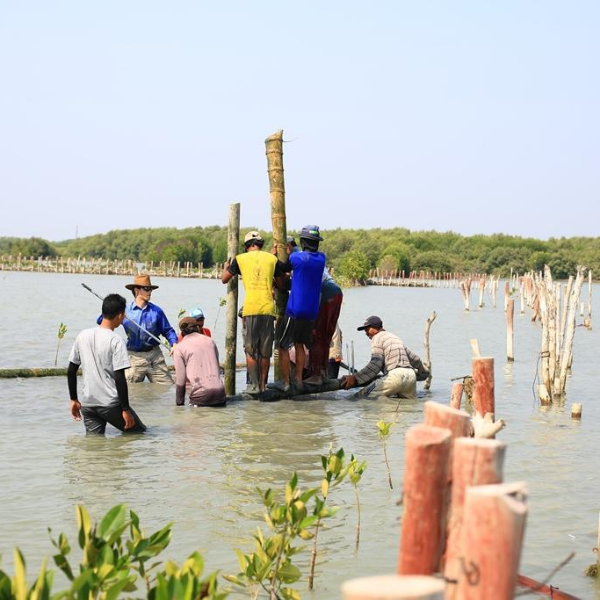Use local knowledge in Building with Nature projects

Use local knowledge in Building with Nature projects
'Involve local people in projects. Show that you actually listen to their suggestions and translate them into concrete solutions. They often have knowledge and insights that outsiders do not have. For me, this is an important lesson from the Building with Nature project in Indonesia in which Witteveen+Bos was involved and which was completed in 2021.'
This is the view of Tom Wilms, involved on behalf of Witteveen+Bos between 2014 and 2018 in the integrated BwN project in the Indonesian district of Demak, on the north coast of Java.
Severe erosion
This project focused on coastal protection, sustainable aquaculture and capacity building. Tom: 'The coastline in the district has been severely eroded, and the sea has come inland: in some places as much as three kilometres! This development has been caused in part by the clearing of mangrove forests for aquaculture, canalisation of rivers and hydraulic structures. As a result, the sea has already swallowed up two villages and many fish ponds.'
Sustainable results call for measures that solve the root of the problem and take all relevant aspects into account, Tom argues. 'A purely technical solution is rarely sufficient. There are also cultural, socio-economic and governance factors that we have addressed.'
Tom emphasises that local people played a crucial role in the project's success. 'They have insights that are not on paper. For example, what are the best places to place the permeable bamboo dams? They know exactly where foundations of former structures are. Then you know that such a spot is not going to work.'
Building sustainable aquaculture was approached in the same way. Dutch and Indonesian experts collaborated closely with local farmers. Together, a teaching programme was set up to train farmers in sustainable aquaculture.
Building with Nature is a programme by Wetlands International, Ecoshape, Ministry of Marine Affairs and Fisheries (MMAF), Ministry of Public Work and Housing (PU), in collaboration with Witteveen+Bos, Deltares, TU Delft, Wageningen University & Research, UNESCO-IHE, Blue Forests, Kota Kita, Von Lieberman, the Diponegoro University, and local communities.
